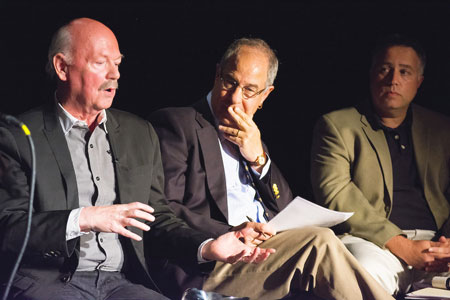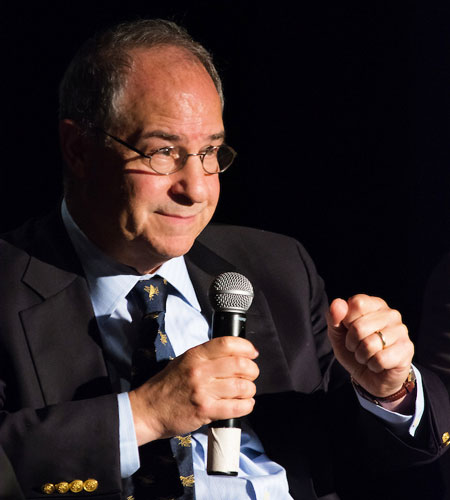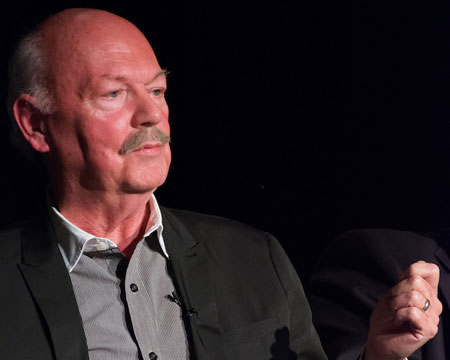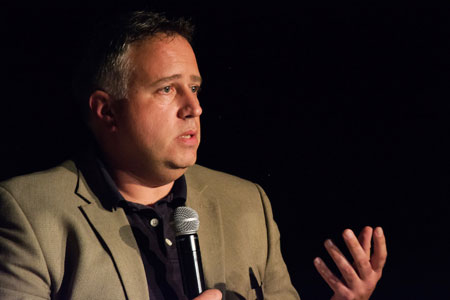Snowden: hero or traitor?
Is Edward Snowden a hero?
In a well-attended panel discussion at Emerson’s Cabaret on October 8, intelligence experts were mixed on the question, but not the attendees.
Eighty percent of audience members deemed Snowden a “hero” versus a “traitor” using their smartphones in an instant poll organized by discussion moderator Spencer Kimball, scholar-in-residence of the Communication Studies Department, who also oversees the Emerson College Polling Society.

Snowden, now a fugitive, became a household name last May after he leaked documents to British newspaper The Guardian showing the National Security Administration was conducting massive monitoring of Americans’ cell phone activity. Snowden worked as a security contractor for the NSA.
Ted Gup, professor in the Journalism Department, who was on the panel and is author of Nation of Secrets (Doubleday, 2007), said, “I’m torn,” when asked if Snowden is a hero.
“Some of what he’s done has performed a public service, and I’m not sure how that would have come to light but for his actions,” Gup said. “[But] he did sign a secrecy agreement.”


